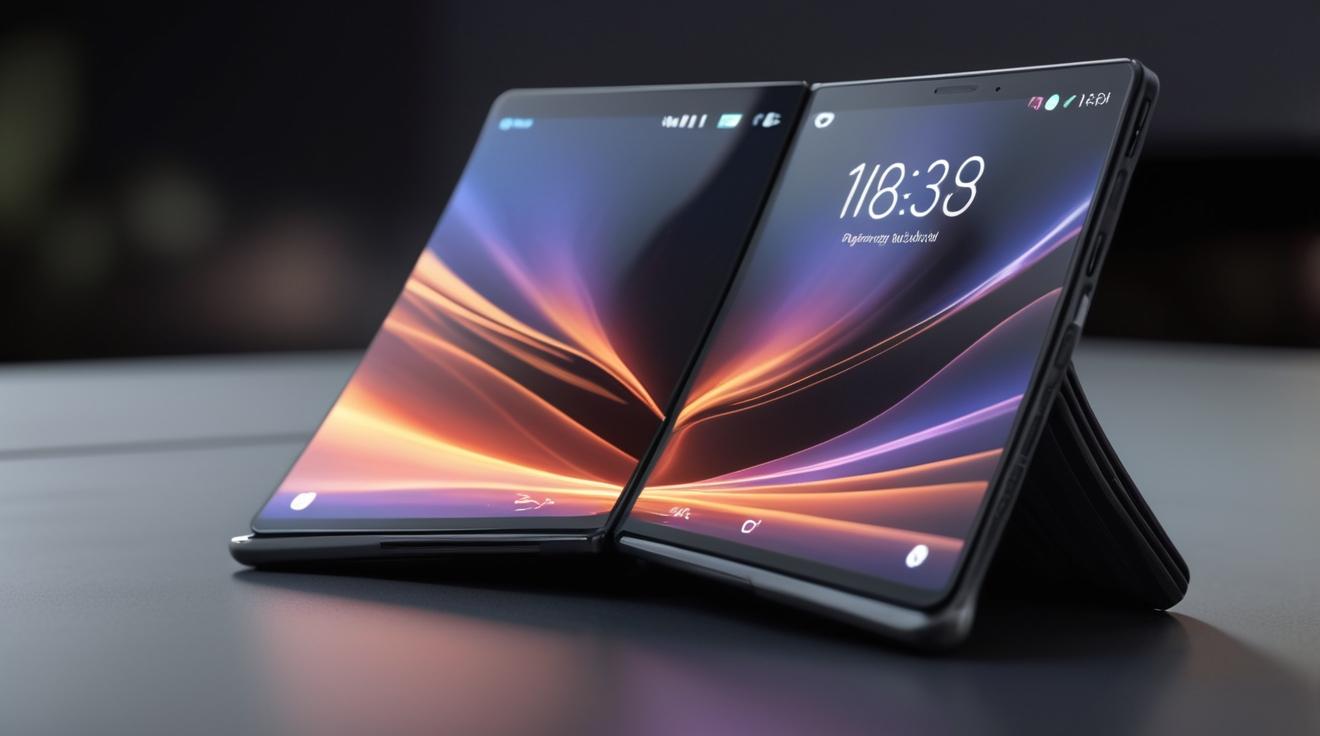## Revolutionizing Foldable Technology: A Sneak Peek into the Future
**A New Era of Innovation**: The *forthcoming launch of a groundbreaking foldable device* promises to **redefine the technological landscape**. Renowned for its **sleek design** akin to *cutting-edge flagship models*, this device is set to captivate audiences globally with its *revolutionary features*.
## Breathtaking Display
With a **stunning 7.6-inch internal screen** and a **6.3-inch external display**, both equipped with **Dynamic AMOLED 2x technology** and an impressive **refresh rate of 120 Hz**, users can expect an *unparalleled visual experience* that *pushes the boundaries of conventional design*.
## Power and Performance
Powered by the **Qualcomm Snapdragon 8 Gen 3 chipset**, a bespoke variant tailored for Galaxy devices, alongside **12 GB of RAM** and **storage options up to 1 TB**, this device is engineered for *seamless multitasking and unrivaled performance*.
## Enhanced Camera Capabilities
The device boasts a **triple camera setup**, featuring a **50 MP primary sensor**, a **12 MP ultrawide lens**, and a **10 MP telephoto lens**. While *specific sensor upgrades remain undisclosed*, users can anticipate *improved light-capturing capabilities* and *enhanced photography experiences*.
## Continuous Evolution
Despite maintaining a consistent **battery capacity of 4,400 mAh** and incremental design refinements, speculation swirls around the potential integration of **innovative flexible glass technology**, hinting at a future with *minimal screen creases* for a *more immersive viewing experience*.
## Embracing Change
As the industry seeks to address *consumer concerns* regarding **foldable devices**, efforts to *minimize creases on displays* aim to attract a *wider audience* by offering *cutting-edge technology* that seamlessly blends *form and function*.
## Additional Insights
**Foldable technology** has been a focal point of innovation in recent years, with various tech giants such as **Samsung, Huawei, Motorola,** and **Microsoft** exploring diverse approaches to create *durable and functional foldable devices*. Each company has introduced unique foldable smartphones and tablets, enhancing the market's options.
### Key Questions:
1. *How durable are foldable devices in terms of long-term use and resistance to wear and tear?*
2. *What advancements in flexible display technology are being developed to enhance the user experience?*
3. *How are manufacturers addressing concerns about the potential for creases or damage to foldable screens over time?*
### Key Challenges:
One of the primary challenges in **foldable technology** is engineering materials that are *both flexible and durable* enough to withstand repeated folding without compromising **screen quality**. Additionally, ensuring a *seamless user experience* through software optimization and **app compatibility** remains a *significant challenge* for manufacturers.
### Advantages:
1. **Enhanced portability and versatility**: Foldable devices allow users to have a *larger screen size* when needed while still being able to fold the device for *easier storage*.
2. The **innovative design** of foldable devices opens up new *possibilities for multitasking and productivity*, as users can utilize different screen areas for *various tasks simultaneously*.
### Disadvantages:
1. **Higher cost**: Foldable devices are generally more expensive than traditional smartphones and tablets due to the *advanced technology and materials* required for their construction.
2. **Durability concerns**: The longevity of foldable screens remains a concern for many consumers, as potential issues like *creasing or damage over time* could impact device durability.
Stay tuned as we continue to monitor the evolving landscape of **foldable technology** and bring you the latest insights and developments.
*Read more about the latest trends in technology and innovation on Bloomberg.*
Future of Foldable Tech: Durability, Advancements & Impact

Lilu Anderson is a technology writer and analyst with over 12 years of experience in the tech industry. A graduate of Stanford University with a degree in Computer Science, Lilu specializes in emerging technologies, software development, and cybersecurity. Her work has been published in renowned tech publications such as Wired, TechCrunch, and Ars Technica. Lilu’s articles are known for their detailed research, clear articulation, and insightful analysis, making them valuable to readers seeking reliable and up-to-date information on technology trends. She actively stays abreast of the latest advancements and regularly participates in industry conferences and tech meetups. With a strong reputation for expertise, authoritativeness, and trustworthiness, Lilu Anderson continues to deliver high-quality content that helps readers understand and navigate the fast-paced world of technology.












